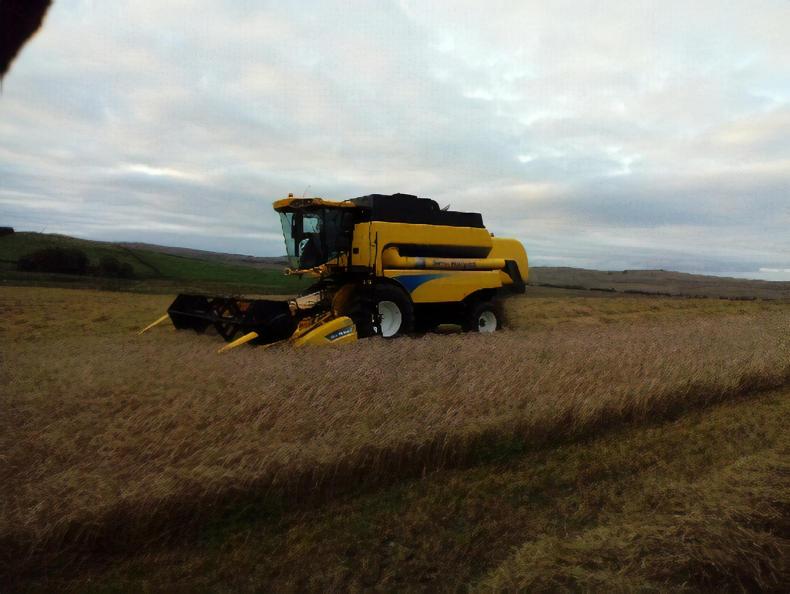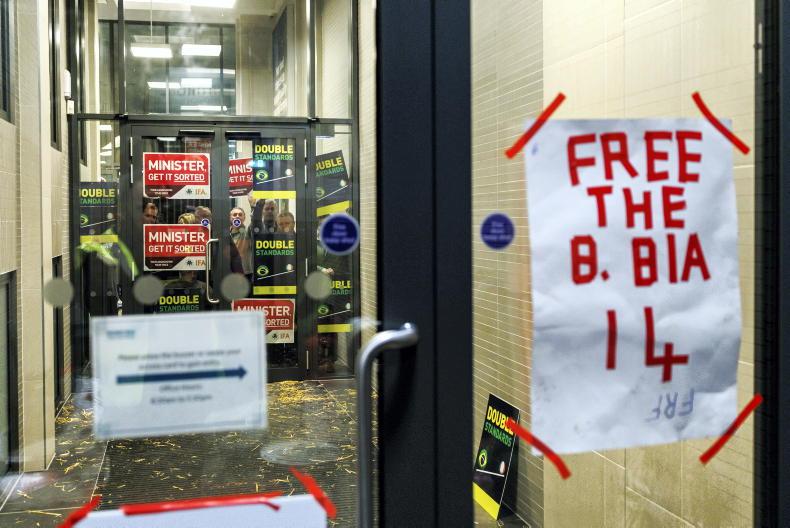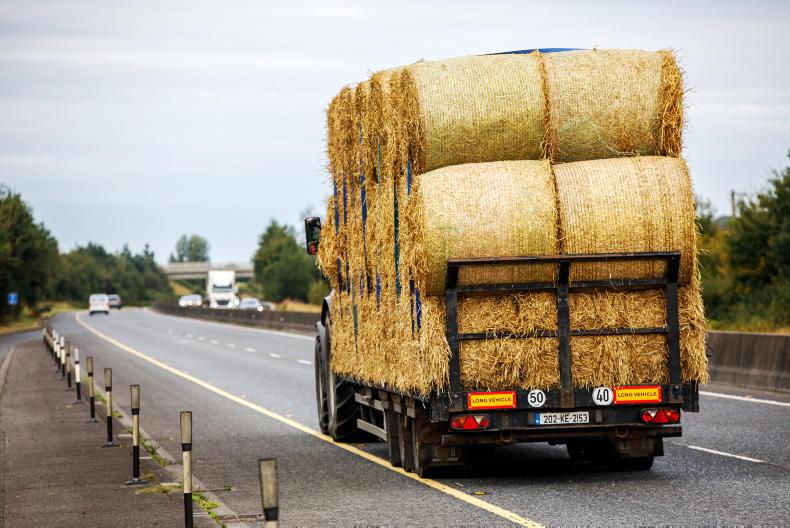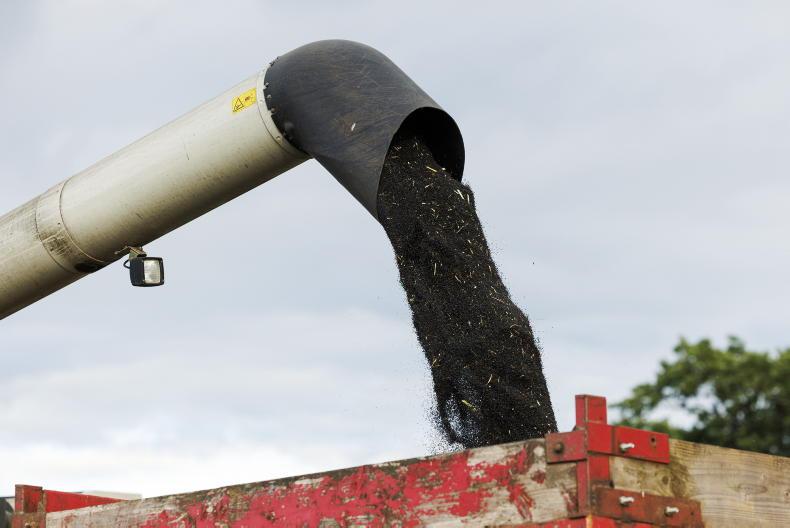Recent days leave no doubt what time of the year we are heading into: after a glorious Saturday, darkness fell by 7.15pm and an overnight the mercury fell to -2°C. Sunday emerged with a cool brisk wind to be replaced by strong winds and heavy rain just after lunch. Fortunately, the 86 bales of second cut baled later on Saturday were wrapped just in time.
The serious shortfall in winter feedstocks arising from the dry summer is slowly but steadily being recouped; we now sit with close to 1,000 bales, still some way short of the comfortable 1,200 bales we like but we still have 20 acres of second cut to complete. We now have enough to see us through 160 days of winter feeding, but enough for another 30 or 40 days would let us relax a bit more.
Harvest was completed on 28 September, a full month ahead of and with yields pleasantly in excess of 2017. There was a good 46t from the 20 acres, coming off at between 21 and 24 %, which is pretty good for here. The crop of spring barley also yielded 116 bales of straw which were baled the following day and wrapped the next in order to preserve any feed value.
A good dose of Propcorn was applied at 14l/ t, which may seem extravagant but I wasn’t taking any risks, given the current value of what seems to be any sort of feed at all. We’ve had experience in the past of the results of scrimping on the preservative and yes, throwing out 20t of barley hurts.
The last few weeks have been busy with the harvest, a bit of arable silage and second cut all to do. The workload hasn’t been helped with breakdowns. Where there is livestock, there is deadstock and where there is machinery, there are breakdowns.
The past five weeks have seen us a tractor short with our most modern tractor – at 12 years old – in the main dealer’s workshop for a replacement clutch pack and a repair to the electronic control unit (ECU). It is extremely disappointing for a machine with only two drivers and 3,600 hours on the clock.
The wrapper’s remote control wrapper was again giving grief, with two unsuccessful attempts at repair. Let’s hope that a £300 replacement unit from McHale fixes it. Again, it is disappointing given the wrapper is only four years old and has wrapped fewer than 6,000 bales.
The forward/reverse shuttle lever on the forklift then decided to fall into my hand as I propcorned the last tonne of barley. The phone call to my local independent mechanic/engineer didn’t start well when the international dialling tone was answered from the beach in Majorca.
Fortunately after a few phone calls on Saturday morning a new lever and switch were located at Linlithgow, which meant a bit of a dash before they shut at midday. Again fortunately the repair was completed on Saturday evening being within my capabilities, with a bit of assistance from the two girls.
Particularly the tractor experience will prompt a review of tractor and machinery fleet. The inconvenience and anticipated cost of repairs, which are expected to be more than what is needed to buy a new tractor may see that one sold to be replaced by an older model which can be repaired on farm.
Modern tractors with all their fancy gizmos are fine when all goes well and under warranty, but while main dealer labour rates bring a tear to the eye, the price of new tractors have gone well beyond returns from farming suckled calves in this part of the world.
Last year’s remaining spring calves and the first of the autumn calves were sold in early September, returning an average of £825/head for an average weight of 400kg at 12-13 months. The decision to market earlier than preferred has perhaps been justified as trade continues to fall, particularly for animals short of the 450kg that the finishers all seem to want now.
The girls’ Zwartbles sheep flock continues to grow; all ewe lambs have been retained thus far although only the strongest will go to the tup. A family friend gifted us two ewes and four ewe lambs, and two tups were purchased at September’s society sale at Stirling. The original intention was to purchase one Zwartble tup and a Texel to follow up, but this wasn’t followed on the day when we managed to buy the reserve male champion and a second place prize winner, all for less than 350gns combined when on the same day at an all-breeds sale we never saw any Texel make less than 400gns.
I hope that the weather remains kind for the next few weeks: it makes a helluva difference if stock can remain outside for just a bit longer.










SHARING OPTIONS